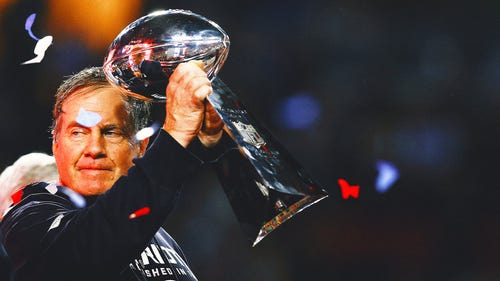
Solid as a Rock
It feels a lot longer than 52 days ago, doesn’t it, when Super Bowl LIV sparkled its way into Miami, one of its favorite, most-visited, and — if we’re truthful about it — best locations.
Back then, the most pressing topic of conversation was the recent passing of Kobe and Gigi Bryant, along with seven others, in a devastating helicopter crash, a shock that affected even those who had never met Kobe and stretched far beyond avid basketball fans.
And, of course, football. It was blissfully balmy when Hard Rock Stadium welcomed the sport’s greatest game and set the stage for an absolute classic, a night where the San Francisco 49ers did everything right and had destiny in their grasp, until Patrick Mahomes showed that no lead is big enough to stifle his indomitable will and electric arm.
That gleaming stadium, which glistens like a modern monument at nighttime and can be seen from miles afield, serves an utterly different purpose now. Staging the most important matchup of the National Football League season is important. Helping to save lives, as it is doing at present, is more so.
Hard Rock Stadium has been repurposed to meet the response to the COVID-19 crisis. The arena’s giant parking lot was announced by Florida governor Ron DeSantis last Saturday as the site for a massive testing complex, designed to help the region’s elderly citizens, first responders. and health care workers find out if they have been afflicted.
Since Monday, lines have stretched and snaked around the lot, where locals wait in their vehicle before driving up to undergo a procedure involving an invasive nasal swab, with the test results processed over the following 48 hours.
“Obviously, things in this area have changed massively, like everywhere else,” Steve Brenner, a freelance sports journalist based in the Miami area told me in a telephone conversation. “Just a few weeks ago, there was all the excitement of the Super Bowl and everything that surrounds it.
“Now, in the neighborhoods, it feels a bit like the zombie apocalypse. Everything has slowed down, like it had to. It couldn’t be more different.”
Gov. DeSantis spoke of how having the mass space of Hard Rock available was a significant boost to the fight against the spread of coronavirus. Marlins Park has also been put into use for a similar purpose.
Sports comes together in different ways. It is almost impossible to keep up with the number of gestures, financial and otherwise, made by athletes with charitable spirit. Zion Williamson, Kevin Love, Giannis Antetokounmpo and Blake Griffin were early contributors, putting up money towards the salaries of hourly workers affected by stadium closures in the NBA. Wednesday saw tennis great Roger Federer make a sizable gift to vulnerable Swiss families stricken by the virus.
J.J. Watt, whose efforts to alleviate the distress caused to Houston by Hurricane Harvey in 2017 went above and beyond, has again stepped up, providing funds to support a food bank in his area. All those efforts, along with what's going on in Miami and elsewhere, just go to show that no matter the circumstances, sports steps up to see us through.
Things change with stunning rapidity in times like these. Walking into Hard Rock on Feb. 2, I will never forget the sense of anticipation. Anything seemed possible. As Mahomes showed, it was. Although COVID-19 was on the fringes of the American news cycle by then, no one had any idea what was coming in the weeks and months ahead.
Football games will come to Hard Rock Stadium again. The current lines will end, the need for mass testing will dwindle, and it will once more be a site for laughter and tailgates and thoughts of football.
Until then, the place where Super Bowl dreams were made and broken is doing its job. A new job, but a vital one.










